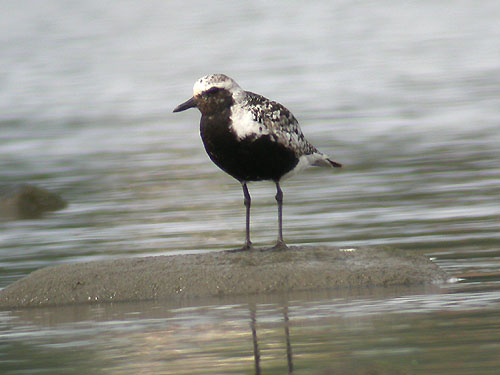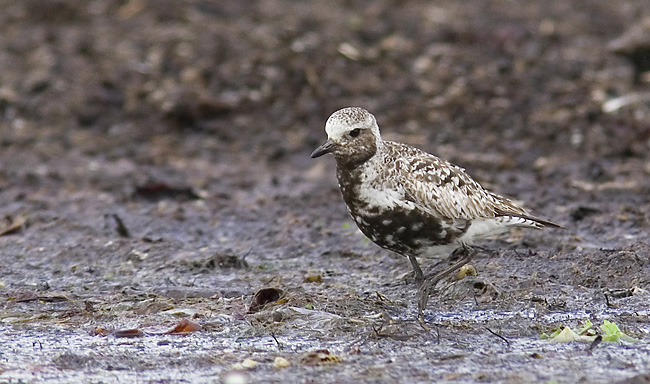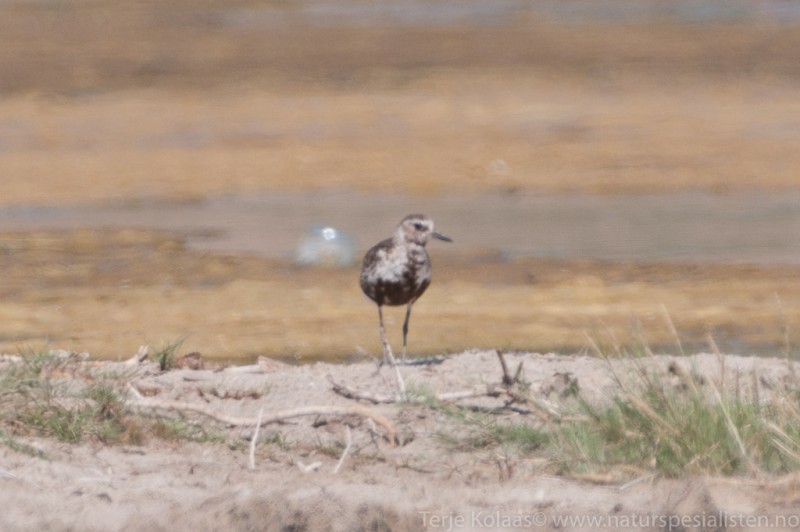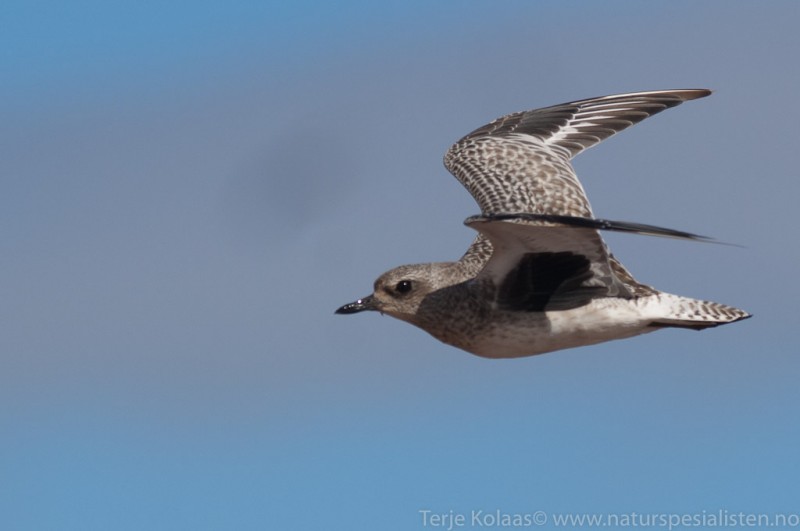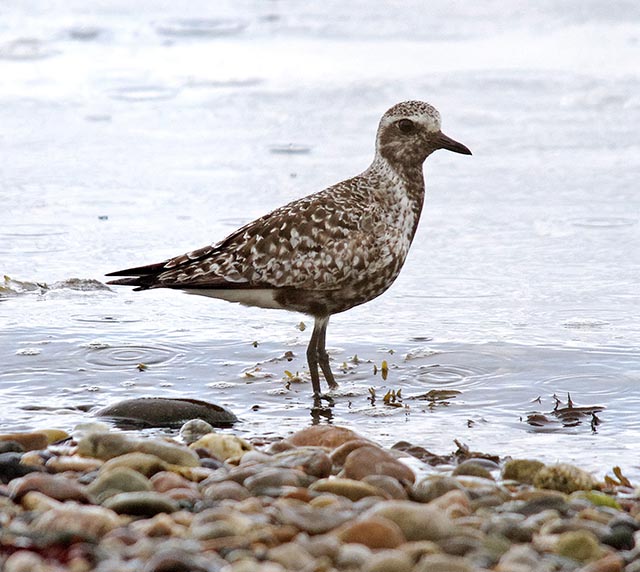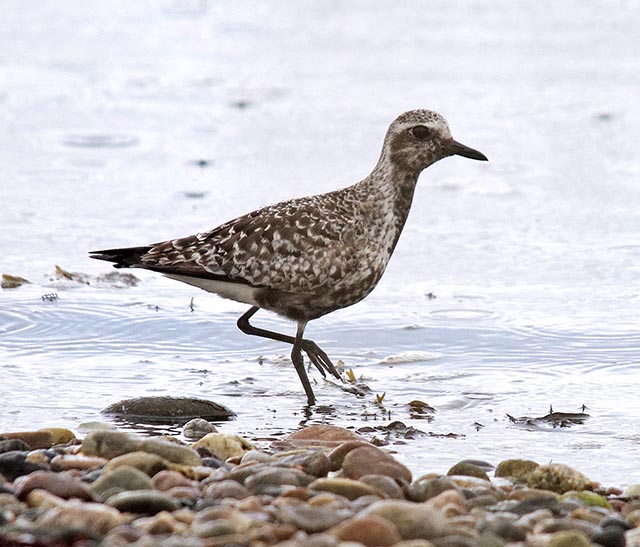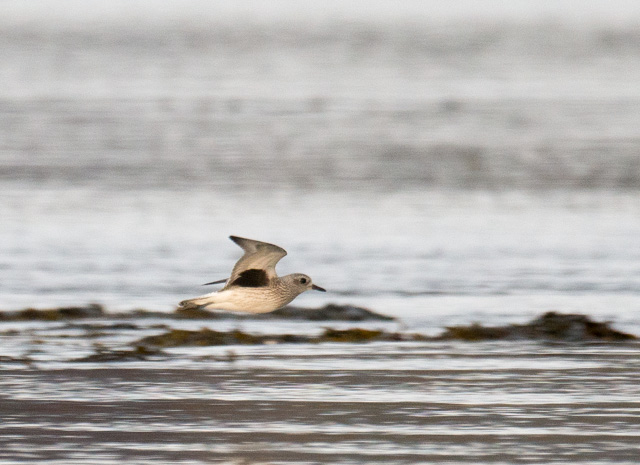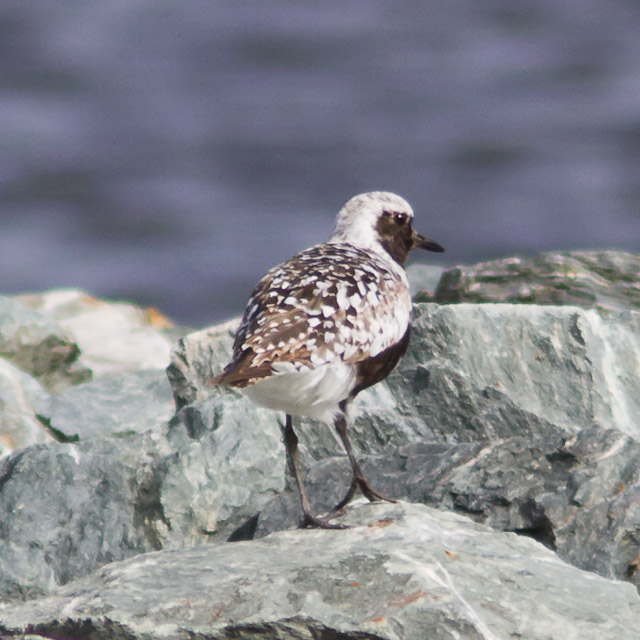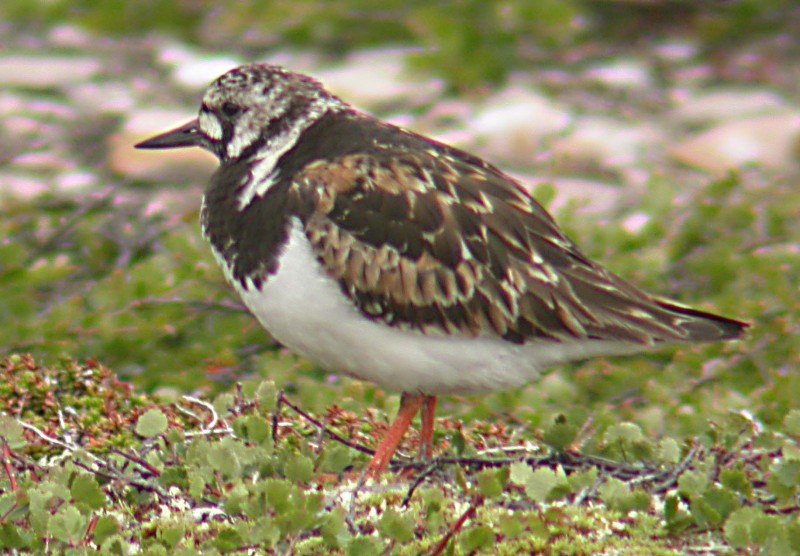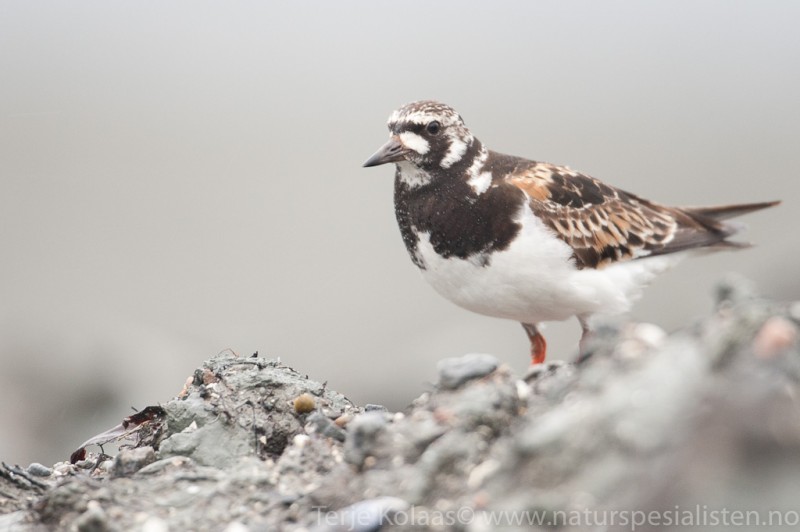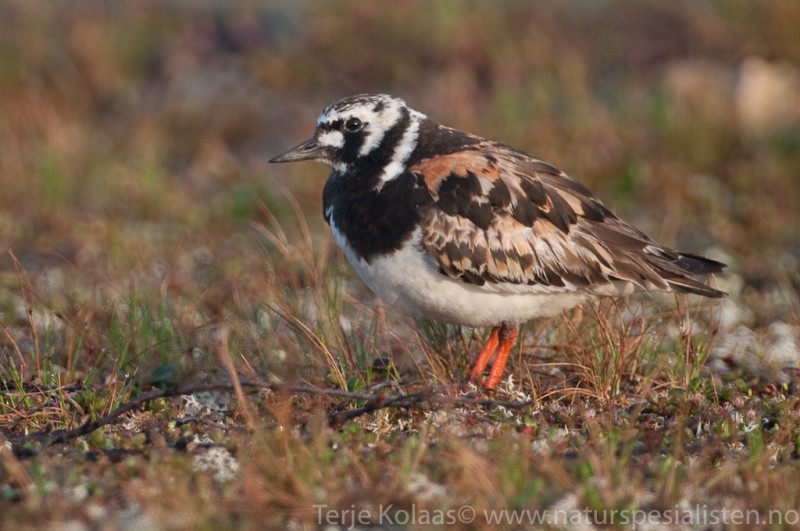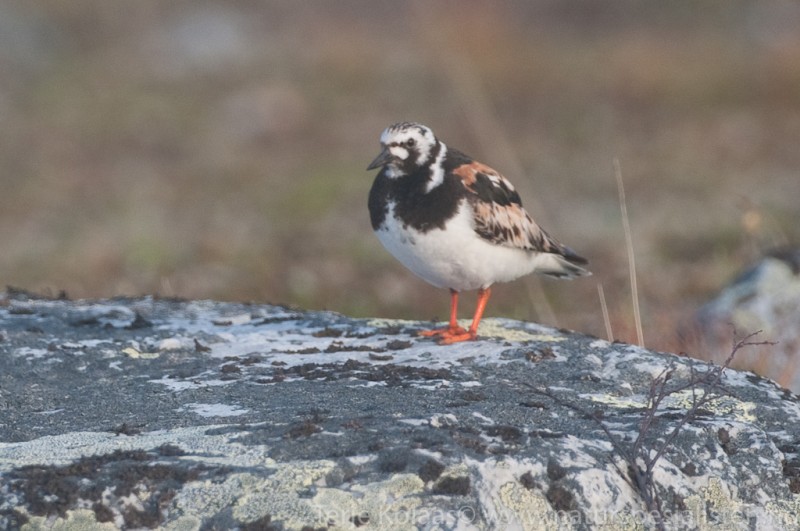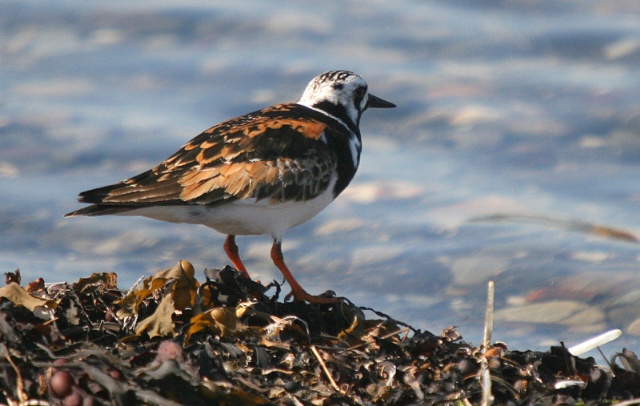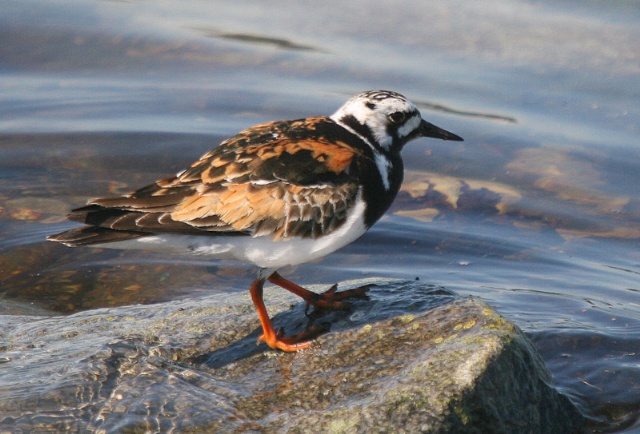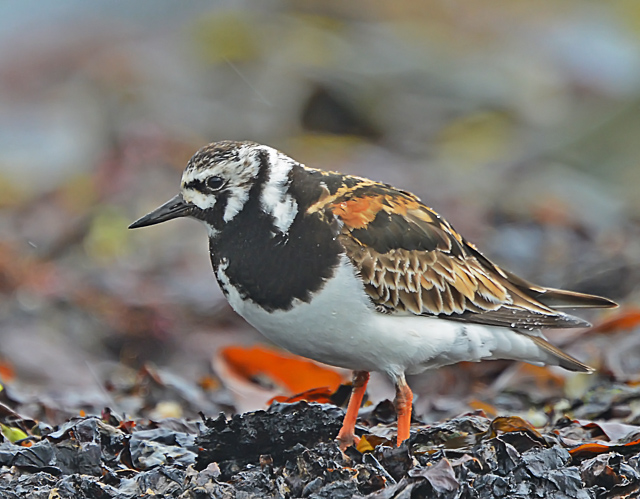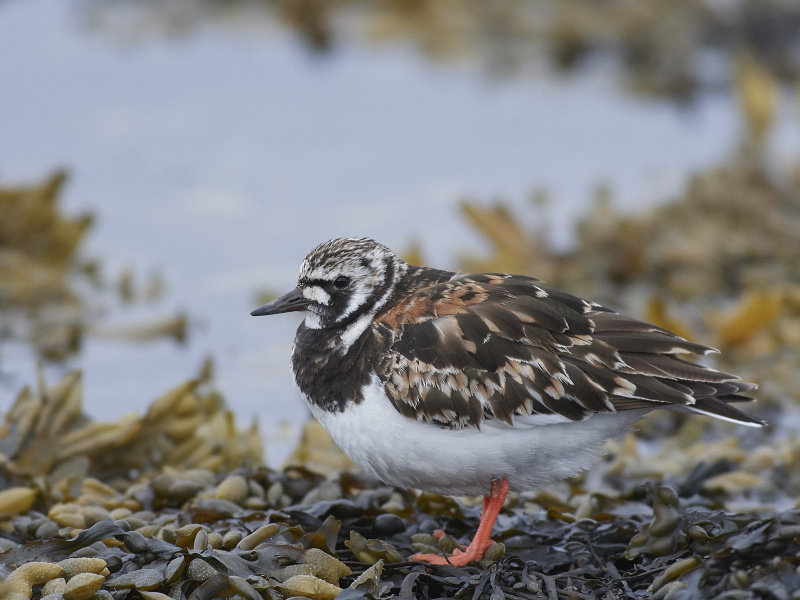Grey Plover (Pluvialis squatarola)
Ruddy Turnstone (Arenaria interpres)
Summer plumage unmistakable, with black underparts framed in white, with white and grey-speckled upperparts. Diagnostic in all plumages are the black armpits, which are clearly visible in flying birds. Also shows white wing-bars and very pale tail, with some barring. Winter-plumaged and juvenile birds speckled in grey with white underparts. Can be mistaken for Golden Plover. Especially the juveniles, which may have faint golden tone to plumage. Note instead heavier bill with swollen tip and bulkier body.
Sound:Contact call diagnostic. A plaintive, drawn and trisyllabic (but continuous) "kleeooowee". Pitch falls on second syllable and rises on last.
Contact call:
Distribution:
Wikipedia: map (se also Xeno-canto below)
Ecology:Birdlife ecology
Links:
Observation.org Latest observations
Image search Flickr NB! May give other species
CCCC-photo:bathyporeia, Licence,Link.CC-sound:Paul Marvin, Licence,Link.
Adults unmistakable. White head with bold black markings and orangy brown back. Even more striking in flight, with white wedge on back, large white patches at base of wings, white wing-bars and black and white tail. Juvenile and winter plumage birds with similar white patches, but with darker head and greyish, dark brown back. Underside always pure white. Leaves a robust and compact impression, with heavy bill and square head.
Sound:Characteristic call: An explosive, hard, resonant and short "koi" or "kott" with a peculiar timbre, usually given in rapid or accelerating series. Alarm call/song more "wader-like", a staccato "kuvi-kuvi-vit-vit-vitua".
Alarm call:
Distribution:
Wikipedia: map (se also Xeno-canto below)
Ecology:Birdlife ecology
Links:
Observation.org Latest observations
Image search Flickr NB! May give other species
CCSounds:Recorded by Niels Krabbe,http://www.xeno-canto.org ,CC license

 English
English Albanian
Albanian
 Armenian
Armenian
 Bulgarian
Bulgarian
 Catalan
Catalan
 Croatian
Croatian
 Czech
Czech
 Danish
Danish
 Dutch
Dutch
 Finnish
Finnish
 French
French
 Georgian
Georgian
 German
German
 Greek
Greek
 Hungarian
Hungarian
 Italian
Italian
 Latvian
Latvian
 Lithuanian
Lithuanian
 Macedonian
Macedonian
 Norwegian
Norwegian
 Polish
Polish
 Portuguese
Portuguese
 Romanian
Romanian
 Russian
Russian
 Sami : Lule sami
Sami : Lule sami
 Sami : North sami
Sami : North sami
 Sami : South sami
Sami : South sami
 Scientific names
Scientific names
 Serbian
Serbian
 Spanish
Spanish
 Swedish
Swedish
 Ukrainian
Ukrainian

